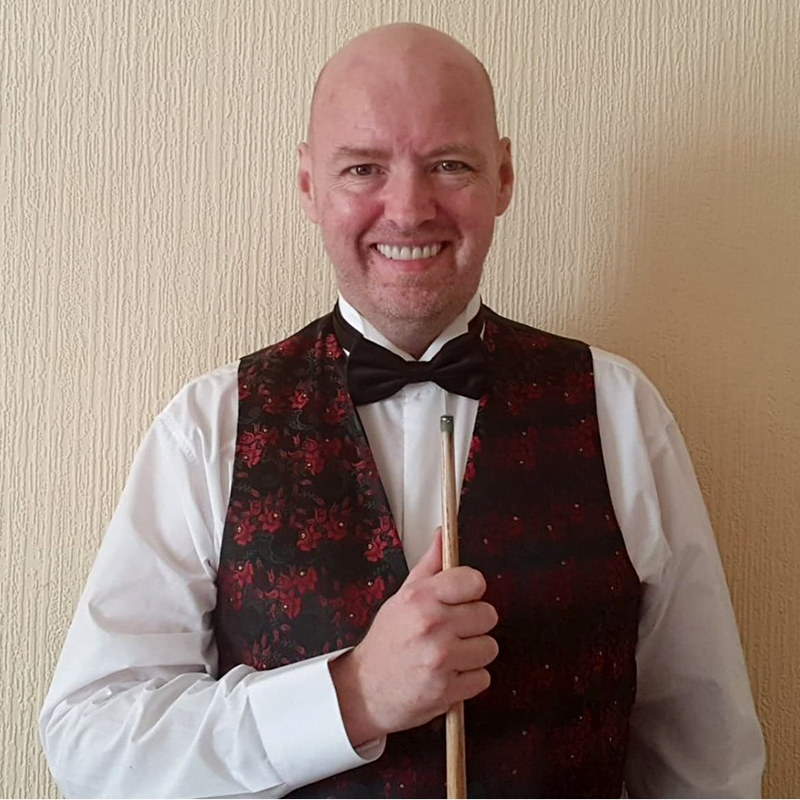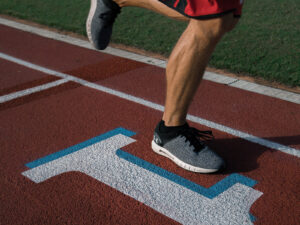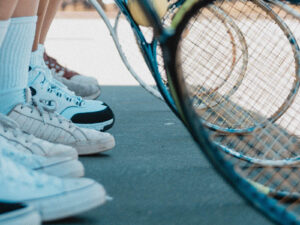Marco Gianetti: Give it a go

During his teenage years, Marco Gianetti was far more accustomed with a cue stick than a chopping board.
But when he stepped in to captain the pool team at his local pub in Plymouth, he was required to pick up both – leading his team on the competition front while making sandwiches behind the bar for his hungry players.
After his sporting journey began when he first played snooker at 13 years old, he went on to represent his home county of Gloucestershire and not only became a very good player – the best in Plymouth at one point – but an all-rounder when it came to pub sports, enjoying not only pool, but darts as well.
Playing sport regularly in the local community helped Marco realise the importance of socialising. This led to his role as a National Autistic Society (NAS) ambassador after he found out he was on the autism spectrum in 2010.
Through pitching his ideas to the local NHS and council, he initiated a return of the befriending scheme to provide autistic people in the local area with a buddy to spend time with, or extra support for families.
Although far from his comfort zone, the role he had at NAS amplified one of Marco’s favourite life mottos.
“You might never be a world champion, but don’t be afraid to have a go and try something new because you never know where it might lead,” he said.
“I once entered and won a competition which involved finding people’s unfulfilled passions – mine was to get involved in disability football. While you see lots of coverage at the high levels, there is very little dedicated to that side of the sport.
“I helped out at some local teams and completed my level one coaching badge. I was informed by the Devon FA that I was the first known person on the autistic spectrum to be qualified as a coach.
“It was great, but I didn’t carry on with coaching because I found it difficult interacting with people, and then I went into the NAS ambassador role instead.
“I did speeches at universities even though standing up in front of people and talking terrified me, but people found it very helpful and a few of them became befrienders.”
When given the chance, Marco prefers to let his cue skills do the talking for him and is rarely known to resist a game of pool or snooker even with complete strangers.
But after touring the town in competitive leagues, the COVID-19 pandemic has seen Marco and the rest of the nation adapt to spending more time at home.
“I’m stuck in most of the time so I bought a dartboard, and I connect up with a friend, who is a former county player, for a few rounds every Sunday evening – he usually wins.
“It keeps me occupied and it’s a bit of exercise – I’ve got a Samsung watch which tracks my steps – and although I’m in Devon, we can still play and have a beer together.
“It’s not a sport I am brilliant at, but it’s something I enjoy playing and watching.”
For Marco, the relationship between autism and sport is something he has learned to appreciate by mostly looking back on his life, having only received his official diagnosis in 2010 at the age of 37.
“When it comes to sport, autistic people are a lot more focused as they can shut things out and fully concentrate on what’s in front of them.
“Whenever I went into a game, it was as if nobody was around me and I wouldn’t hear someone if they tried talking to me. Maybe that was why I was successful.
“I knew I was different my whole life. I didn’t have many friends at school and I always had questions – why this, why that? But I didn’t have the answers until someone told me about Asperger’s.
“I looked it up and had a lightbulb moment where every question I had was answered.”
But Marco has never doubted the importance of sport in his life, despite suffering with health issues that impact his playing ability, including Graves’ Disease and muscle atrophy.
Now snooker in particular is providing him with a long-term purpose.
“When I find things a struggle, I just go back to what makes me happy. It might be gaming which is like a fantasy world, or having a kickabout in the garden up against a wall, or just throwing a few darts, because they take me away from it all.
“The social aspect of playing in a league gets you out and makes you interact with other people – it builds your confidence and can give you other people to practice with, so you get better.
“Once the COVID-19 pandemic is over, I will start going to the snooker club again, improving like I did 20 years ago.
“There is a World Disability Snooker Championship which is held at the Crucible in Sheffield, so it is my aim to play there one day. That was my plan in the past, so maybe I can do it now.
“I’ll never know unless I try.”


